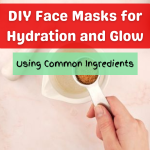
Hormones influence nearly every function in the body, and their effects on skin and hair are particularly noticeable. Whether it’s sudden breakouts, excessive hair fall, or changes in skin texture, many beauty concerns can be traced back to hormonal fluctuations. While genetics and lifestyle play a role, hormones often serve as the root cause of many skin and hair issues. Understanding how these chemical messengers work can help you take the right steps to restore balance and improve your overall appearance.
The Connection Between Hormones and Skin
The skin is highly sensitive to hormonal changes, which explains why acne, dryness, and pigmentation tend to fluctuate at different stages of life. One of the biggest culprits behind skin issues is the group of hormones known as androgens. These include testosterone, which is present in both men and women but can lead to problems when levels are too high.
During puberty, androgens increase oil production, often leading to acne breakouts. In women, hormonal shifts during menstruation, pregnancy, and menopause can cause changes in sebum levels, sometimes making the skin overly oily or excessively dry. Estrogen plays a significant role in maintaining skin hydration and elasticity. When estrogen levels drop, especially during menopause, the skin can become drier, thinner, and more prone to wrinkles.
Another hormone that affects skin health is cortisol, the stress hormone. High cortisol levels lead to inflammation, making conditions like eczema, psoriasis, and rosacea worse. Stress-induced breakouts are also common, as excess cortisol triggers oil production, leading to clogged pores. When hormonal imbalances persist, they can also affect wound healing, making scars and blemishes take longer to fade.
How Hormones Influence Hair Growth and Health
Hair health is closely tied to hormonal balance, and any disruption can lead to excessive shedding, thinning, or even unwanted hair growth in certain areas. Androgens, particularly dihydrotestosterone (DHT), are known to shrink hair follicles in individuals genetically predisposed to hair loss. This is why men commonly experience male pattern baldness, and some women notice thinning hair as they age.
Estrogen, on the other hand, helps maintain hair growth by keeping strands in the anagen (growth) phase for a longer period. During pregnancy, high estrogen levels often result in thick, voluminous hair, but after childbirth, estrogen drops sharply, leading to postpartum hair shedding. Thyroid hormones also play a role in hair health. Hypothyroidism, or an underactive thyroid, can cause hair to become dry, brittle, and prone to falling out. Hyperthyroidism, where the thyroid is overactive, may result in fine, thinning hair.
Cortisol once again plays a major role in hair loss. Chronic stress pushes hair follicles into the telogen (resting) phase, leading to excessive shedding, a condition known as telogen effluvium. When stress remains unmanaged, hair loss can persist for months before regrowth starts.
Managing Hormonal Acne and Skin Issues
If you experience frequent breakouts or skin changes related to hormonal fluctuations, making adjustments to your skincare routine and lifestyle can help. The first step is maintaining a consistent cleansing routine to remove excess oil and prevent clogged pores. Using a gentle, sulfate-free cleanser twice a day ensures that dirt and impurities do not build up.
Incorporating skincare ingredients that target hormonal acne can be beneficial. Salicylic acid helps to unclog pores, while niacinamide reduces inflammation and controls excess oil production. If breakouts tend to worsen around your menstrual cycle, using benzoyl peroxide as a spot treatment can help reduce bacteria and prevent flare-ups.
Diet also plays a significant role in balancing hormones for clear skin. Reducing processed sugar and dairy intake can help minimize hormonal fluctuations that trigger acne. Drinking plenty of water and including anti-inflammatory foods like turmeric, green tea, and omega-3 fatty acids in your diet can promote healthier skin.
If breakouts persist despite lifestyle changes, consulting a dermatologist may be necessary. Prescription treatments like birth control pills, spironolactone, or retinoids can help regulate hormonal acne by targeting excess androgens or increasing cell turnover.
Preventing and Treating Hormonal Hair Loss
Hair loss caused by hormonal imbalances can be distressing, but addressing the root cause can improve hair health. If thinning hair or excessive shedding is a concern, checking hormone levels through a medical professional is a good starting point. Conditions like polycystic ovary syndrome (PCOS) or thyroid disorders should be ruled out, as they often contribute to hair loss.
A balanced diet with adequate protein, iron, and biotin supports hair growth. Foods like eggs, nuts, spinach, and fatty fish provide essential nutrients that strengthen hair follicles. Scalp massages with essential oils like rosemary or peppermint can stimulate blood circulation, encouraging regrowth.
Using mild, sulfate-free shampoos and avoiding excessive heat styling prevents further damage. If hair loss is severe, treatments like minoxidil or low-level laser therapy may help promote regrowth. Stress management techniques such as meditation, exercise, and proper sleep are also crucial for maintaining a healthy scalp.
The Impact of Lifestyle Choices on Hormonal Balance

Since hormones are influenced by lifestyle habits, making positive changes can improve both skin and hair health. Managing stress is essential, as prolonged stress raises cortisol levels, leading to breakouts and hair fall. Activities like yoga, deep breathing, and spending time outdoors can lower stress and bring hormonal balance.
Sleep also plays a critical role in hormone regulation. During deep sleep, the body repairs and regenerates cells, allowing skin and hair to recover from daily damage. Ensuring seven to eight hours of quality sleep each night helps maintain a healthy hormonal cycle.
Exercise supports hormonal balance by improving insulin sensitivity and reducing inflammation. Regular workouts help regulate androgens, making conditions like PCOS-related acne and hair thinning more manageable. However, excessive exercise can have the opposite effect, increasing cortisol and leading to imbalances.
When to Seek Professional Help
While many skin and hair issues can be managed with lifestyle adjustments, some cases require professional intervention. If acne becomes painful or persistent, consulting a dermatologist ensures that the right treatments are used. Similarly, if hair loss is severe or accompanied by other symptoms like fatigue or irregular periods, a doctor can help identify underlying hormonal disorders.
Endocrinologists specialize in hormonal health and can provide tests to check for imbalances. Treatments such as hormone replacement therapy, prescription medications, or dietary adjustments may be recommended based on individual needs.
Conclusion
Hormones have a profound impact on both skin and hair, influencing everything from breakouts and oil production to hair growth and texture. While hormonal imbalances can cause frustrating beauty concerns, understanding their effects allows you to take proactive steps to restore balance. By maintaining a healthy diet, reducing stress, using targeted skincare and haircare products, and seeking professional guidance when needed, you can achieve radiant skin and strong, healthy hair. A holistic approach to self-care not only improves your appearance but also enhances your overall well-being.





Leave a Reply